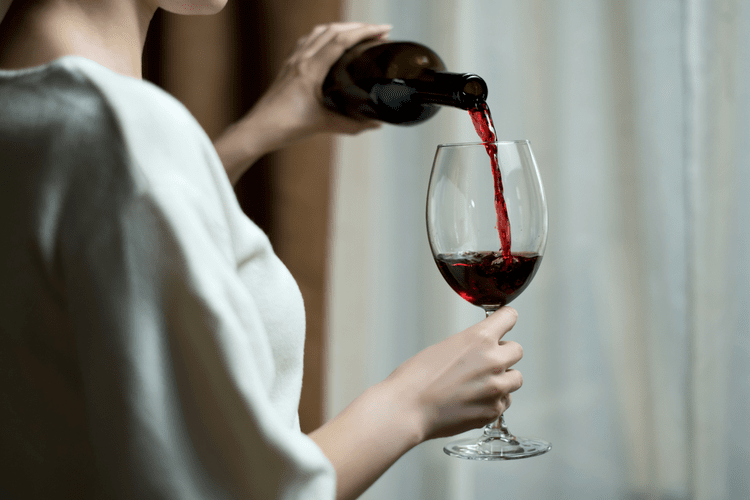If you or a loved one is struggling with alcohol dependency, we are here to help you regain control of your health and future. Since alcohol is a diuretic, it contributes to dehydration, which directly affects tear production. Reduced tear production leads to dry, irritated eyes, which can cause discomfort, redness, and an increased risk of eye infections. The extent of visual impairment caused by alcohol is influenced by several factors, with Blood Alcohol Content (BAC) being a primary determinant.
Prevention and Detox Treatment for Alcohol Abuse
This can lead to the development of conditions that impair vision, such as cataracts, age-related https://www.r-doors.com/vitamins-for-drinkers-essential-supplements-to/ macular degeneration (AMD), and optic neuropathy. AMD, for example, affects the central part of the retina, which is responsible for providing clear, sharp vision. Heavy drinking can also cause nutritional deficiencies, preventing the liver and other organs from absorbing vitamins and functioning properly, which can contribute to vision problems. Yes, stopping alcohol consumption can improve your vision over time, especially if your blurred vision is directly caused by alcohol’s effects. Alcohol dehydrates the eyes and disrupts normal blood flow to the retina, leading to temporary visual disturbances.

Common Areas We Service
It can also cause changes in eye movement and affect attentional control of sight. Alcohol affects the central nervous system, leading to a decrease in visual acuity. Alcohol also slows down reaction time, increases sensitivity to glare, and alters brain function, affecting how the brain processes visual information. One of the main ways in which alcohol impacts night vision is by increasing sensitivity to glare. This can make it difficult to see at night, Sobriety as the glare from headlights or street lights can obstruct vision.
What are the five signs of alcohol poisoning?
This occurs because alcohol disrupts hydration and nutrient absorption, both of which are essential for maintaining eye health. Furthermore, heavy drinking over an extended period may damage the eyes, leading to potential issues such as distorted vision or even sight-threatening diseases. Therefore, it is important to consider the impact of alcohol consumption on one’s eyesight and maintain moderation in drinking habits. One of the main causes of blurry vision after drinking alcohol is dehydration. This can lead to dehydration, which can affect the eyes and lead to blurry vision. When the body is dehydrated, it can cause the eyes to become dry and irritated, which can lead to temporary blurriness.
- This study now affirms how visibility at night can be adversely affected by alcohol.
- However, we’re all for imbibing in a cold beverage with your coworkers or loved ones at the end of a long week!
Alcohol Affects Essential Nutrients Your Eyes Need
Thirdly, alcohol increases sensitivity to glare, which can be a problem when faced with bright headlights or streetlights. Finally, alcohol alters brain function, affecting how the brain processes visual information. The effects of alcohol on vision can be attributed to its impact on the central nervous system and its direct effects on the eyes. If blurry vision occurs while intoxicated, it is important to take steps to sober up and seek medical attention if the symptoms persist. If you or a loved one struggles with alcohol dependency, seeking treatment can prevent long-term damage to your health, including your eyesight. Chronic alcohol use affects not only vision but also brain function, cardiovascular health, and mental well-being.
Common Vision Problems Linked to Alcohol Consumption
This condition causes irritation, a gritty sensation, and blurry vision hangover discomfort, especially in dry environments. A study by NASA’s Ames Research Center found that consuming the equivalent of less than half a beer for a 75 kg person can compromise the ability to process visual motion. This is crucial for hand-eye coordination in activities like driving, piloting, or operating heavy machinery. The study highlights the potential impact of even minimal alcohol consumption on high-risk activities that require precise visual and visuomotor control. The autonomic nervous system controls involuntary functions like pupil constriction and dilation, as well as the eye’s ability to adjust focus, known as accommodation. Alcohol can disrupt this control, leading to slower pupil reflexes and impaired accommodation dynamics, affecting the speed and accuracy with which the eyes can change focus.

How To Effectively Support Someone With Anosognosia

For people with diabetes, heavy alcohol consumption significantly accelerates the progression of diabetic retinopathy—a serious eye disease affecting blood vessels in the retina. Research suggests heavy drinking accelerates the development of age-related macular degeneration (a leading cause of vision loss among older adults). AMD damages the macula—the central part of your retina responsible for sharp, detailed vision. Eye problems induced by alcohol abuse might not always be immediately apparent, making routine check-ups an essential tool for early detection.
How long does blurry vision typically last after drinking alcohol?
- One such condition is alcohol-induced optic neuropathy, which is damage to the optic nerve caused by alcohol toxicity.
- Adequate nutrition, especially B vitamins and antioxidants, supports eye health and can mitigate alcohol’s impact on nutrient absorption.
- However, as with most treatments, some patients will react better than others.
- Alcohol can slow the reaction time of your pupils, making them less responsive to changes in light.
- It leaves you with questions about the future and whether you’ll be able to see if you quit alcohol use, or if it’s already too late.
It is also common for individuals who are recovering from a night of heavy drinking to experience temporary blurriness or difficulty with depth perception the next morning. These examples illustrate how alcohol can directly impact vision and contribute to temporary visual impairment. Prolonged alcohol consumption can lead to various eye diseases and disorders, while chronic abuse can result in toxic effects on the ocular system. Alcohol affects the functioning of the eye by slowing down the transmission of signals between the eye and the brain.